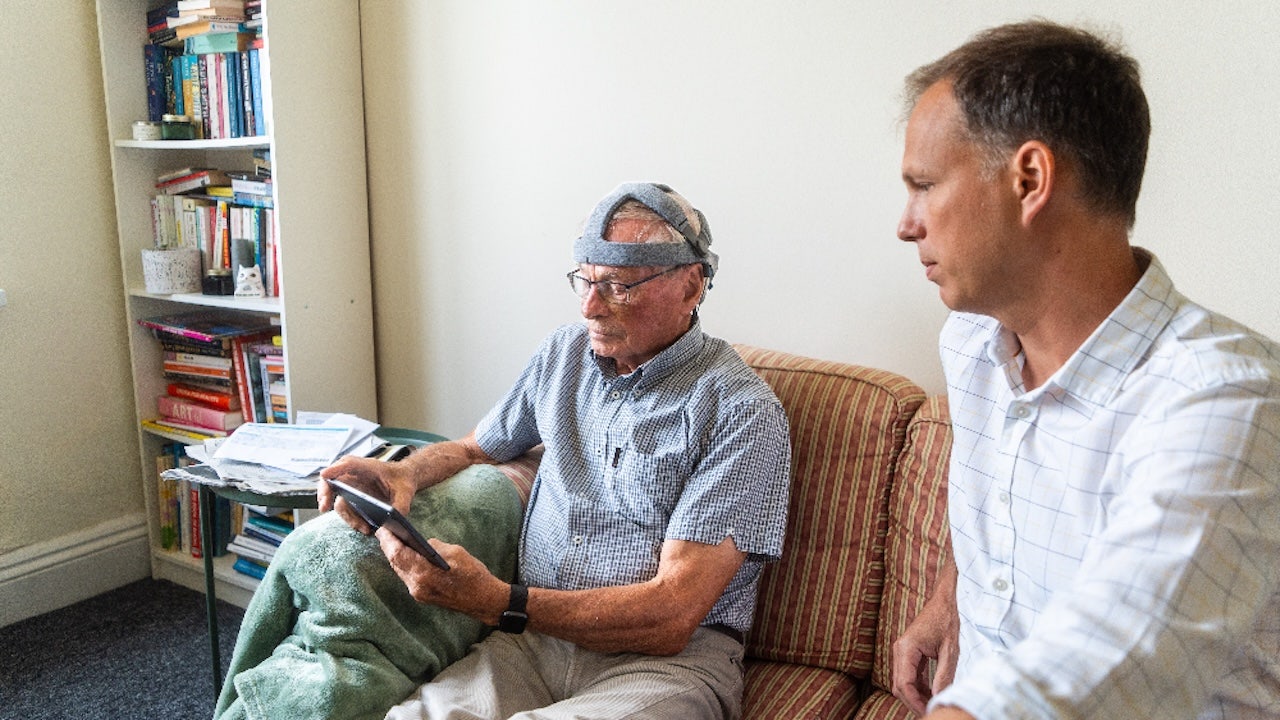New 3-minute brainstest detects early Alzheimer’s signs with EEG with EEG

A groundbreaking new brainwave test has been developed that can detect early signs of Alzheimer’s disease years before a formal diagnosis is made, all in just three minutes. This innovative technology, known as Fastball EEG, was recently tested by researchers from the University of Bath and the University of Bristol in the homes of patients.
The Fastball EEG test involves recording the electrical activity in the brain while the individual views a series of images. It is specifically designed to identify signs of mild cognitive impairment (MCI), which often precedes the onset of Alzheimer’s disease. What sets Fastball apart is its “passive” nature, meaning it can capture brain responses without the need for participants to actively answer questions or recall information. This makes the test less susceptible to external factors like anxiety, education level, cultural background, or language proficiency.
According to Dr. George Stothart, a cognitive neuroscientist involved in the study, Fastball has shown sensitivity to both diagnosed cases of Alzheimer’s disease and individuals at high risk of developing the condition. The test was found to be reliable in measuring memory-related brain activity in both healthy older adults and those with MCI over a one-year period.
The ultimate goal of Fastball is to enable earlier detection of Alzheimer’s disease, allowing for prompt intervention and treatment. By identifying individuals at risk of developing Alzheimer’s sooner, healthcare providers can offer access to effective medications like Donanemab and Lecanemab that can slow disease progression.
While the Fastball EEG test shows promising results, further research is needed to confirm its effectiveness and integration into standard diagnostic protocols for Alzheimer’s disease. It is important to consider additional tests and assessments to provide a comprehensive evaluation of cognitive health and disease risk.
As technology continues to advance in the field of Alzheimer’s research, tools like Fastball have the potential to revolutionize early detection and intervention strategies. By working closely with healthcare providers and staying informed about the latest developments in Alzheimer’s diagnostics, individuals can take proactive steps to protect their cognitive health and well-being.
For more information on health and wellness topics, visit www.foxnews.com/Health. This study was funded by the Academy of Medical Sciences and supported by the Dementia Research Charity Brace.
Melissa Rudy is a senior health editor and member of the Lifestyle team at Fox News Digital. For story tips, contact melissa.rudy@fox.com.




